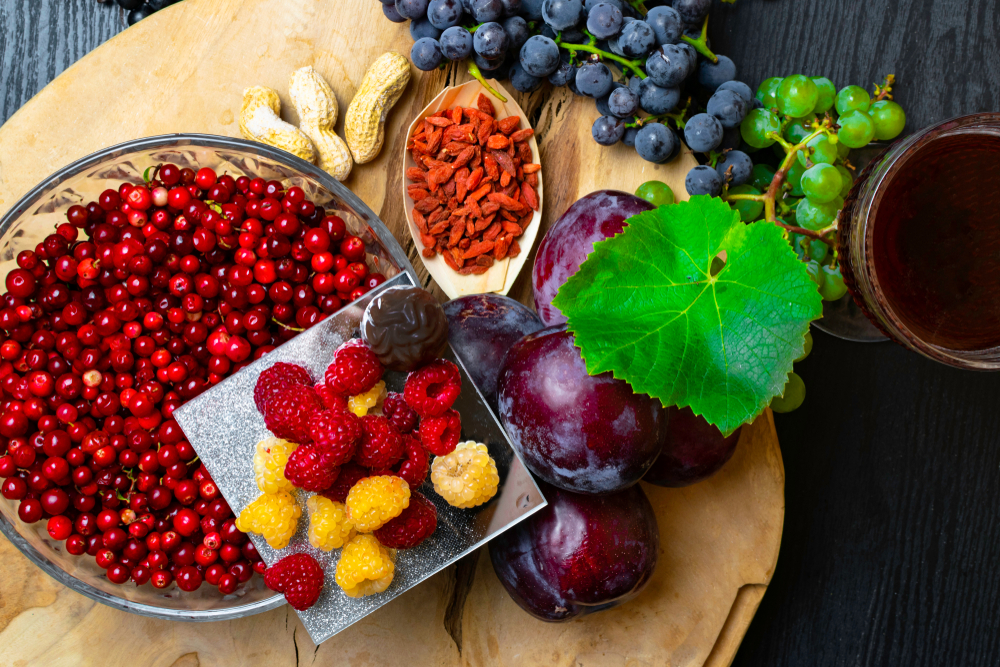A possible “antiviral” action
To combat coronavirus, possible help could come from resveratrolActive ingredient of natural origin with recognized antioxidant capacity (stilbene polyphenol). It is found in plants such as vines and in fruits such as cocoa and blackberries., a natural substance that has been shown to have dual action: antiviral, because it can prevent virus replication, and anti-inflammatory, which could help counteract the more severe effects of Covid if used topically, directly on nasal mucous membranes. This was suggested by a group of Italian experts in the pages of Frontiers of Immunology, presenting the (still preliminary) results of some experiments in which resveratrol was shown to significantly decrease the replication of Sars-Cov-2 (the virus that causes Covid-19) in nasal epithelium cells. As a supplement, on the other hand, resveratrol has been used for years for its antioxidant and anti-inflammatory properties, which counteract the onset of chronic diseases and exert an anti-aging effect on our bodies. Given the many promises of this wonder of the plant world, here is a brief history of resveratrol and its properties.
Resveratrol: what are we talking about?

Resveratrol is a natural molecule found in many types of fruits, including grapes, raspberries, mulberries
Chemically speaking, it is a non-flavonoid phenol, that is, an organic compound produced naturally by various plant species. For plants, resveratrol is basically an antiparasitic, helping them to defend themselves from attack by bacteria, fungi and other pathogens. Lucky for humans, because this means that resveratrol is present in high amounts in many fruits, such as grapes, raspberries, mulberries, blueberries, but also in peanuts. To take full advantage of its anti-inflammatory and anti-aging properties, it is also possible to use dietary supplements, remembering, however, that they are not all the same. The effects, in fact, change considerably depending on dosage and combination with other ingredients, which can enhance, or depotentiate, the effects of resveratrol.
Resveratrol is a polyphenol with anti-inflammatory and antioxidant properties, and also appears to be able to decrease the replication of the coronavirus responsible for Covid-19
What are the limits?
Despite its many properties, resveratrol also has some “weaknesses.” For example, it is referred to as having “poor bioavailability,” because it does not readily pass the cell barrier in its pure form, and cells therefore have difficulty using it even when it is present within the body. This applies to its “final” form, but it is possible to get around this problem by using a precursor, that is, a molecule that our body can use to produce resveratrol. This is the case with polydatin, a glycosylated form of resveratrol that can easily cross the cell barrier and release its beneficial potential. Polydatin has also been shown to have an even greater ability than resveratrol to counteract the effects of free radicalsA free radical is a particularly reactive molecule or atom that contains at least one odd electron in its outermost orbital. Because of this chemical characteristic, free radicals are highly unstable and try to return to equilibrium by stealing from the nearby atom the electron needed to equalize its electromagnetic charge. This mechanism gives rise to new unstable molecules, triggering a chain reaction that, if not stopped in time, ends up damaging cellular structures and metabolic processes., and to activate some of the molecular pathways on which resveratrol acts.
What are the mechanisms of action?
Looking at its beneficial properties, resveratrol is a powerful antioxidant that can protect cells from the negative effects of oxidative stress, one of the main factors behind aging. It is also able to counteract inflammation, a mechanism that contributes to the onset of chronic diseases in the course of aging through so-called inflammaging"Chronic low-grade inflammation" or inflammaging, such as a state of low intensity but constant organic inflammation (associated with an increase in some proteins, the inflammatory cytokines) that causes damage to the body., that is, a low level of chronic inflammation that over time damages tissues, accelerating aging and worsening the effects of age-related diseases.
Resveratrol is used as a dietary supplement to counter the onset of chronic diseases and for an anti-aging effect on our body
More and more research also shows that resveratrol can improve the functioning of mitochondria, the cell organelles where ATPAdenosine triphosphate (ATP) can be defined as the "energy currency" of the cell, the instrument through which the cell carries out processes that require energy (endoergonic) and is produced by reactions that release energy (exergonic). (the fuel used by cells) is produced. This effect stems mainly from resveratrol’s ability to modulate the activation of sirtuinsSirtuins are proteins expressed by SIRT genes that perform an enzymatic activity, which means they stimulate chemical reactions essential for the body. Their function has been ascertained by several studies, although there still seems to be a lot to know about them. SIRTs in short:
• are proteins with enzymatic properties
• regulate the metabolic processes related to insulin resistance
• have a control over immunity
• have a fundamental role in epigenetics
• are involved in defences against cancer
, proteins essential for the functioning of mitochondria, and in this way the substance is believed to be able to increase the activity of these cellular organelles, counteracting the onset of disorders such as diabetes and obesity, and thus contributing to better health in old age.

Resveratrol appears to regulate cell death, improving memory and cognitive abilities
Finally, resveratrol appears capable of regulating apoptosis, which is the process of programmed cell death. This is a fundamental mechanism for eliminating old or damaged cells, but it can be harmful when activated in healthy cells, as can occur in neurodegenerative diseases or other disorders. Thus, by decreasing apoptosis in neural cells, resveratrol is believed to promote memory and cognitive performance in the elderly.
Along with glutathione, NAD+ and polydatin, resveratrol is one of the so-called “longevity molecules” that SoLongevity research focuses on. On this site you can find an in-depth study dedicated to each molecule.







